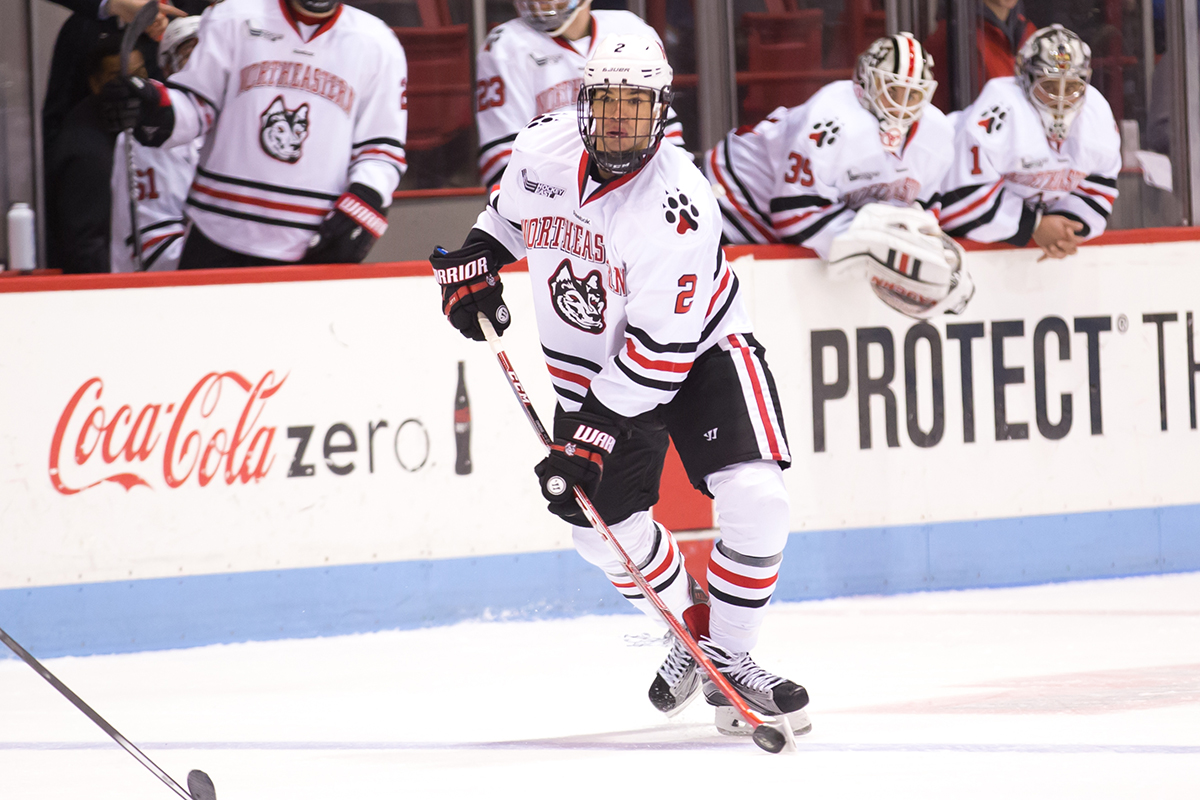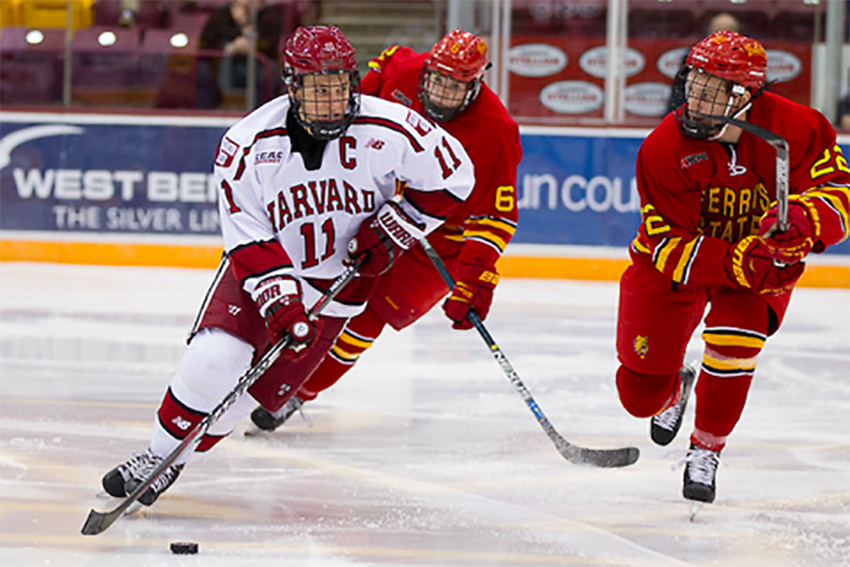Work Out Like: A Beanpot Hockey Player
On Monday night, the hockey teams from Boston College, Boston University, Northeastern, and Harvard will once again begin battling it out for the Beanpot title. Getting there doesn’t come without hard work and long, grueling hours on the ice—so we asked Northeastern’s Trevor Owens and Harvard’s Kyle Criscuolo just what goes into being a Division I college hockey player:

Trevor Owens. Photo provided
Trevor Owens
Quick facts: Owens is a sophomore defenseman for Northeastern.
Schedule: The Huskies practice four times a week, with most practices lasting about an hour and a half. During a typical week, they’ll play two or three games.
Fitness: Workouts vary, but Owens says they almost always incorporate both strength and cardio. The team’s strength and conditioning coach, Dan Boothby, also emphasizes athletic efficiency. “Since day one we have focused heavily on moving air throughout our bodies to not only help with recovery, but more importantly, to position our bodies to increase power output and reaction time,” Owens says. “He has it down to a science.”
While hockey is the main event during the season, Owens says he’s a big basketball fan when schedules allow. “Its the best cardio, in my opinion,” he says. “Plus you’re working on your footwork and hand-eye coordination.”
Diet: He starts the day with eggs, a protein shake, fruit, and plenty of water. Next comes a light lunch, then pasta, chicken, and greens for dinner and another protein shake before bed. “I have always tried to do what I can to maximize my performance,” Owens says. “It comes down to consistency with hydration, nutrition, and recovery.”

Kyle Criscuolo. Photo provided
Kyle Criscuolo
Quick stats: He is a senior forward and the captain of Harvard’s team.
Schedule: During the season, the team does weight training twice a week, while the other days are for on-ice practice or games.
Fitness: Aside from weight training, with one day devoted to core and upper body, the team does prehab work to strengthen the shoulders, hips, and neck and prevent injury. They also focus on recovery, using ice, hydration, and NormaTec machines to stay game-ready. “Being able to perform optimally on consecutive nights, with five days separating games, is the focus of college hockey,” Criscuolo says. “Our training regimen allows for us to be ready come Friday and Saturday night.”
Diet: “I attempt to exclusively consume water in terms of liquids,” Criscuolo says. “For meals, I try to have four per day if my schedule allows for it.” He’s big on carbo-loading and says a typical pregame meal includes chicken, salad, pasta, and fruit.


